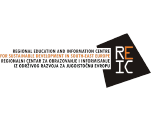about Spatial Justice
Issues to be tackled
People living in peripheral areas generally are exposed to poverty, pollution and social inequality. This is a great challenges especially along urban settlements within the Western Balkan countries. Other relevant issues include unplanned settlement or squatter settlement. These types of settling are often employed by low-income households. The socio-demographics of these households result in unproportionally effects on the society groups. The challenges of the peripheral areas relate to discrimination of women and young people, prejudice and inequalities, environmental and urban elements as lack of access to clean water, proper waste collection, housing, access to education and economic elements such lack of employment opportunities.

Aim of the project
To address the needs of the social groups the project “Spatial Justice” aims to gather in a period of 24 months, with 6 partners from EU and Western Balkan countries, information on good practices and to develop tools to address the local challenges. The overall goal of the project is engaging, empowering and enabling youth, to lead sustainable actions in the process of transformation of peripheral areas into liveable areas through sharing good practices, innovative tools, and methods.
Objectives
The capacities of 24 young professionals will be raised through the mobility activities, more than 20 rural youth from each organization are engaged in local activities and their capacities will be increased, 1 toolkit and gamification game on urban design is developed and delivered to young professionals, more than 1000 people are reached through dissemination activities, and digital events and communication
Empower
Empowering young professionals from participating organizations with appropriate tools and methods to influence the transformation of peripheral areas into livable areas.
Engage
Engaging and enabling rural youth to effectively contribute to scaling up peripheral areas upgrading.
Disseminate
Disseminating the results and the methodology of the project with the purpose of making a wider impact to the society through online events and virtual communication.

24
Urban Advisors

120
Empowered youth

6
Partners

1000
Rearch
Project Consortium
The consortium is comprised of NGOs from Austria, Albania, Montenegro, Bosnia & Hercegovina and Slovenia.






